basically…
Rape Play is a non-fiction investigation of the social landscape of fanfiction writing by teenage girls online and the learned narrativization of sexual violence. Fanfiction is defined as self-published writing by fans that uses the canon of their respective fandom, whether it’s characters or real people. While not always, fanfiction often features smut or pornographic fantasies. Through interviews and archival research, the film touches on internet history, sexual assault discourse, and the magical, cultural production happening in the bedrooms of teenage girls worldwide every day. The title of the film comes from a tag put on fanfiction to designate role-played non-consensual encounters, also called rape fantasies. These fantasies are sometimes interpreted as coping mechanisms to process sexually traumatic experiences, but I argue that they are instead potentially the result of over-exposure to sexual violence in media.
Rape Play interrogates my own experiences of sexual violence and how reading these fictions at a young age affected me and countless others, informing our relationships with sex, violence, and community. By shedding light on the negative effects of early exposure to violent tropes in media, I hope to point towards a future where online communities collectively prioritize criticality in the content they are producing, NOT stopping that production, but proceeding with awareness and open conversation. The lens of online fanfiction writing, specifically fantasy as a personal outlet, provides a unique opportunity to explore a new angle on what rape culture looks like, online, and in our everyday lives.
Rape Play investigates this social landscape through three main modes: first-person testimonies, archival research, and meta-reenactments. The testimonies are intimate, one-on-one conversations between myself and a variety of young women who grew up writing/reading fanfiction. We discuss our formative experiences on the social blogging site Tumblr, making friends online, growing up in conservative neighborhoods, and needing anonymous outlets to express our closeted sexualities. Online communal spaces become a lush safe haven for queer youth and rehabilitating sexual trauma. In a search for reconciliation, we discuss personal experiences of sexual violence and imagine achievable fantasies of healing without glamorizing or perpetuating our trauma. Snippets of my research for the film flash throughout the film in the form of pages from a book we bound by hand as part of the film. The book contains essyas, fanfiction, personal notes, scripts for sequences and readings, some featured in the film, some not.
STILLS






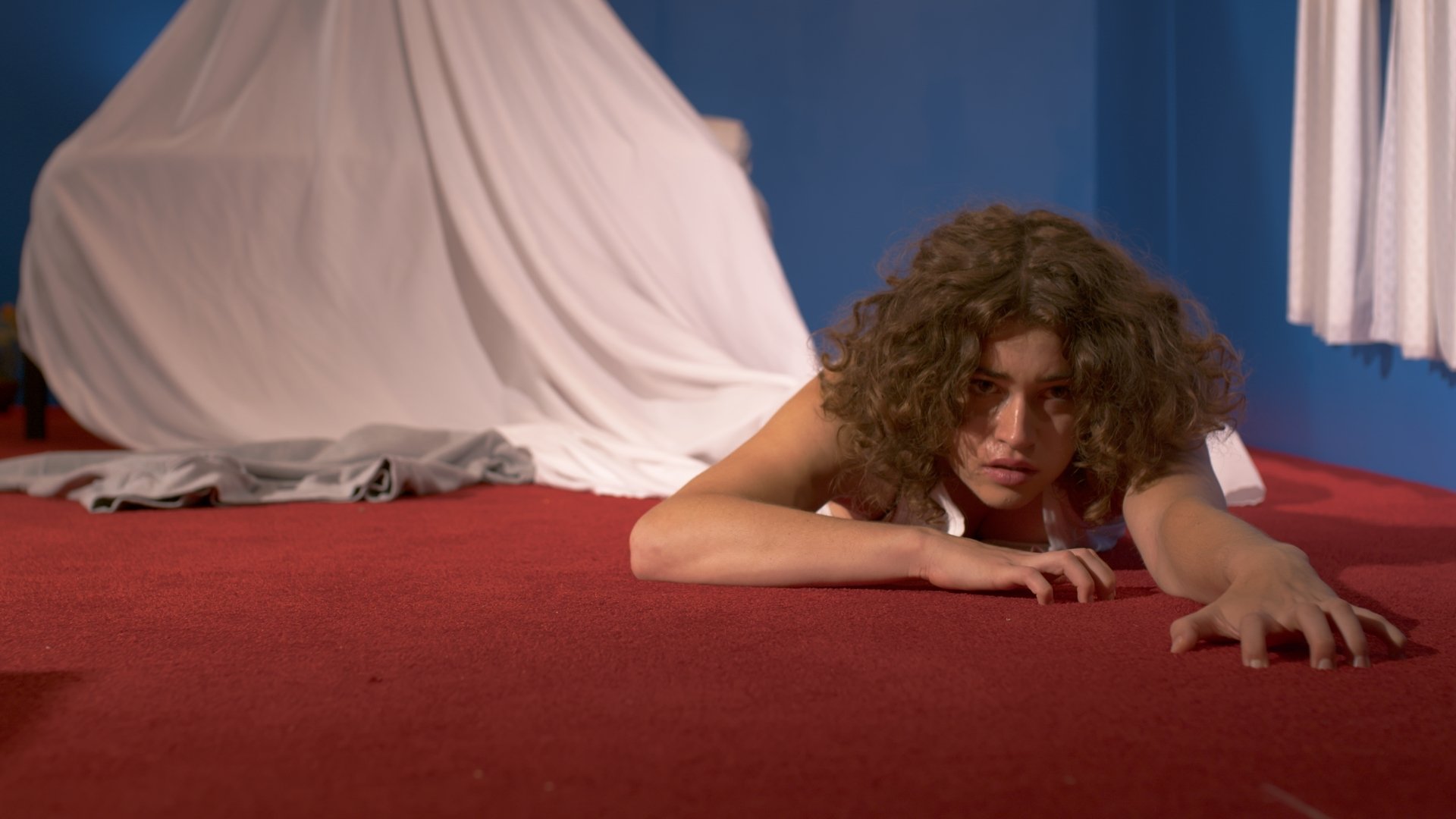




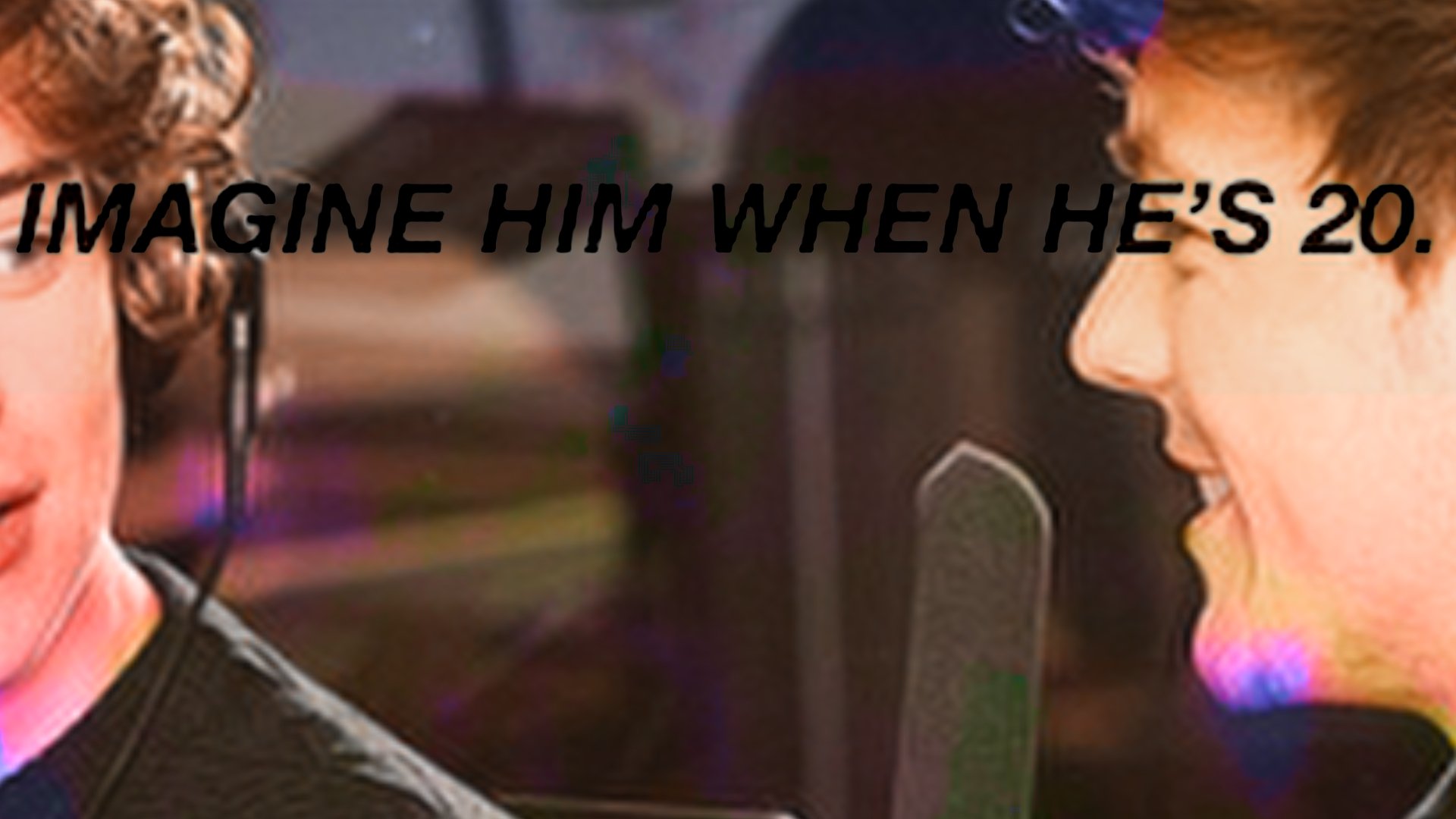



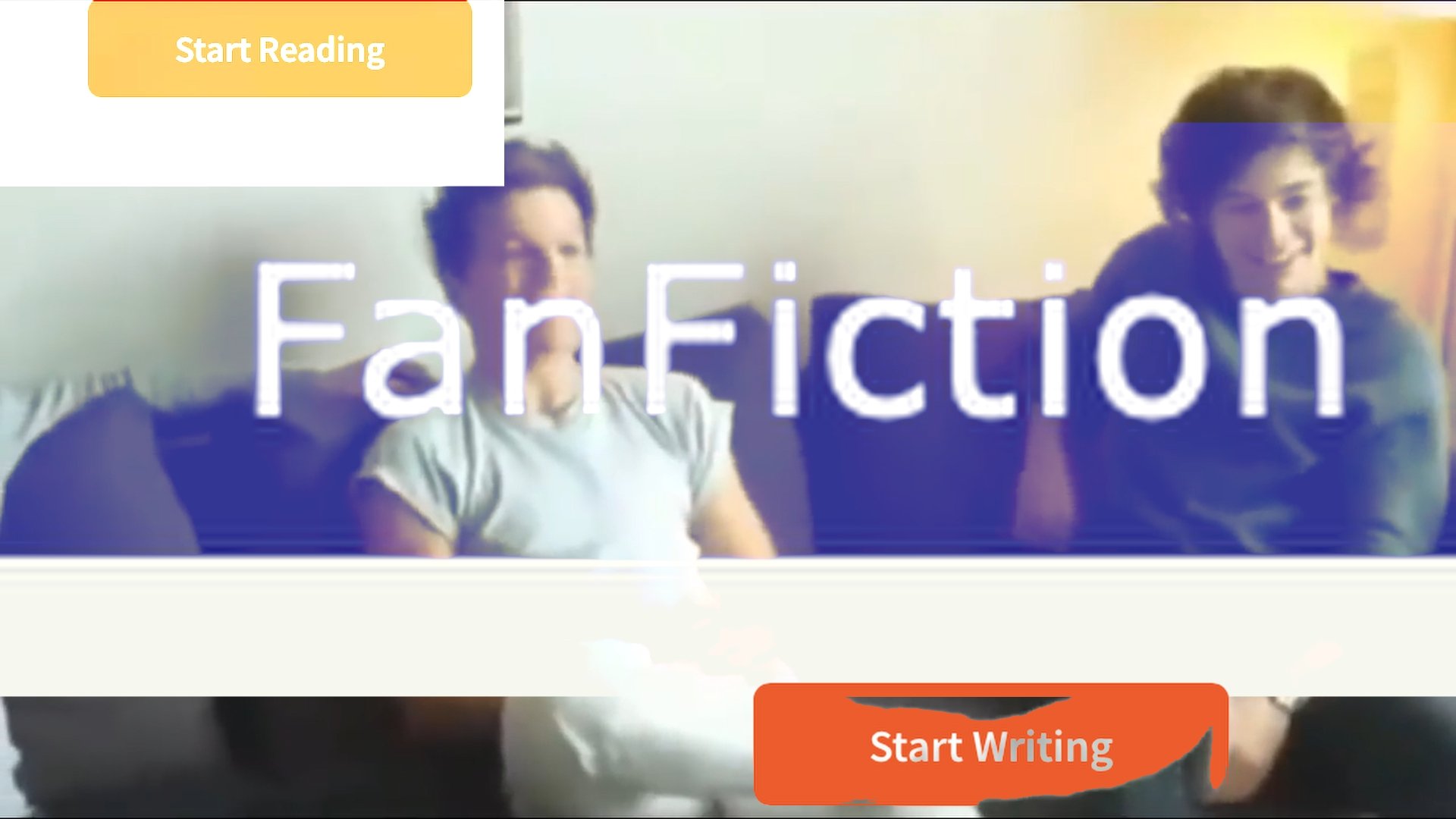

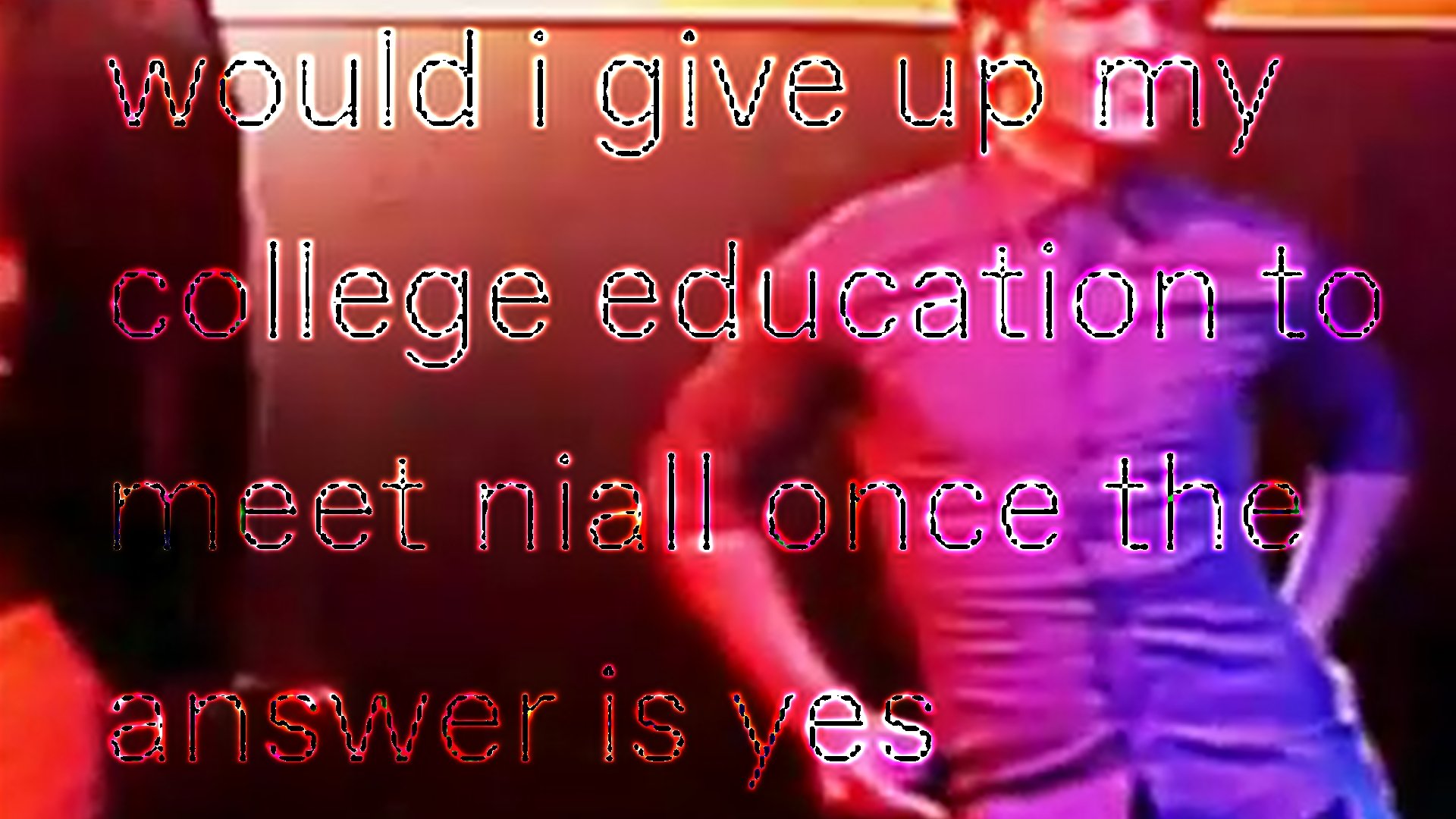

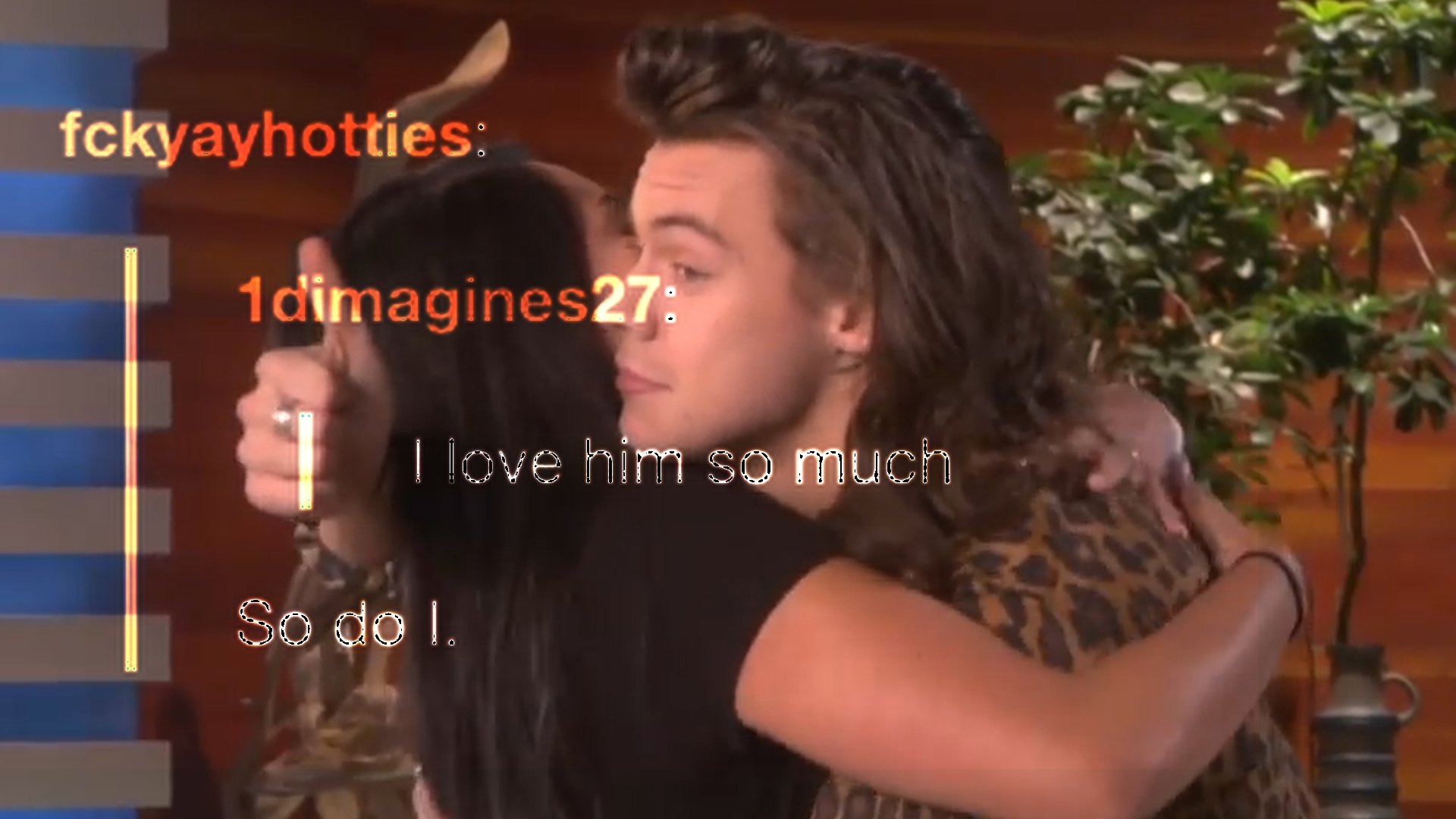
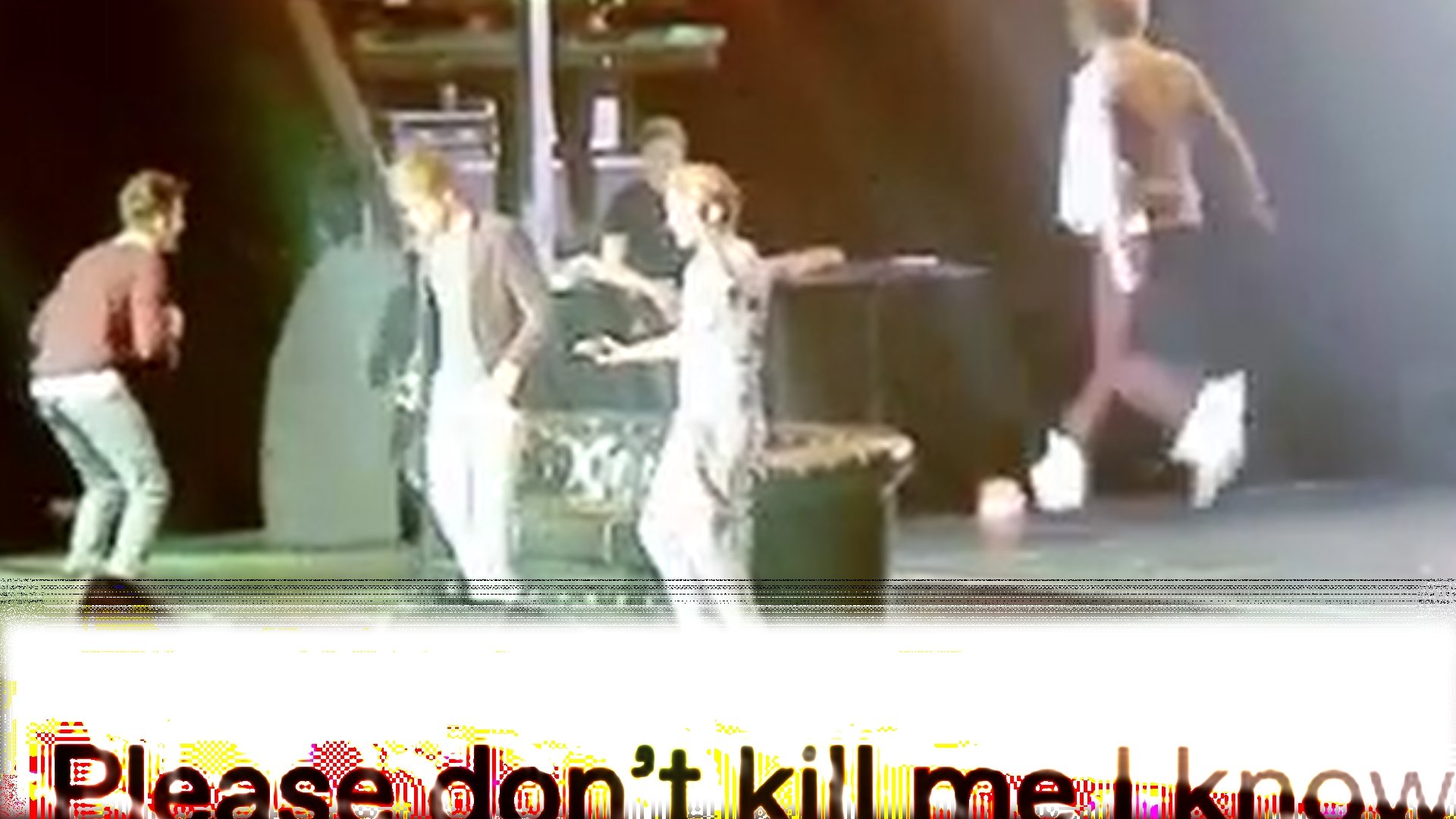

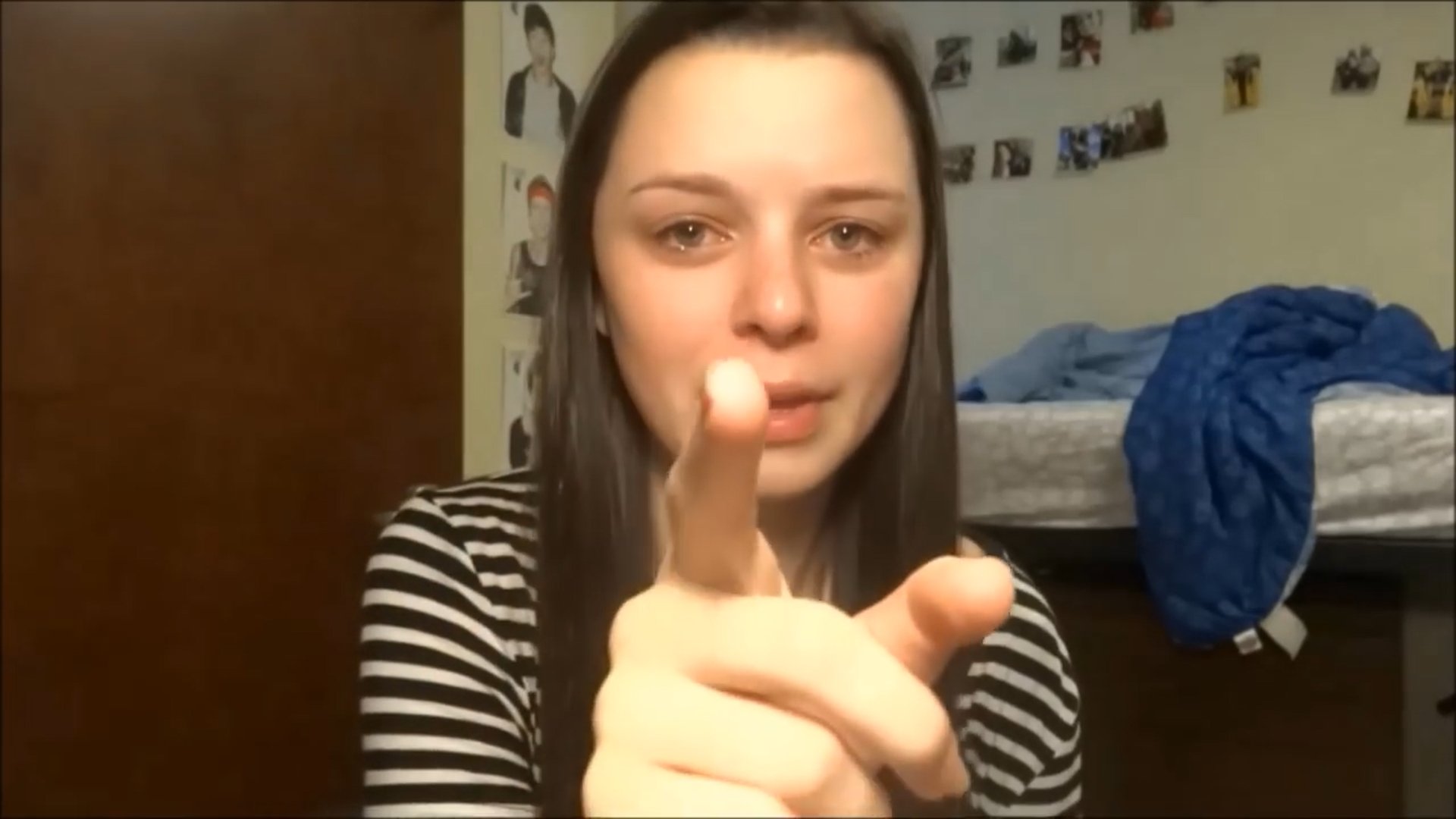











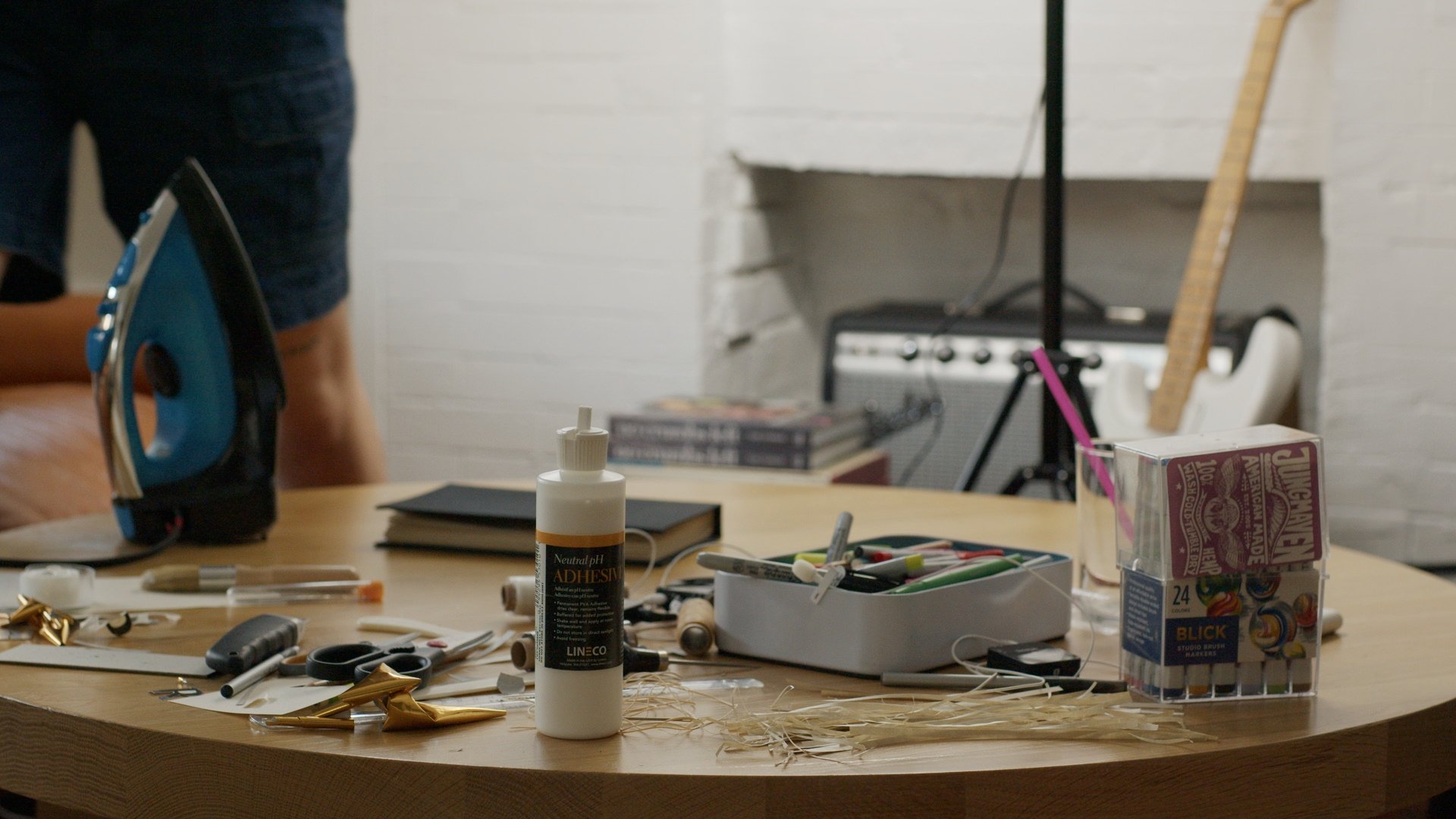
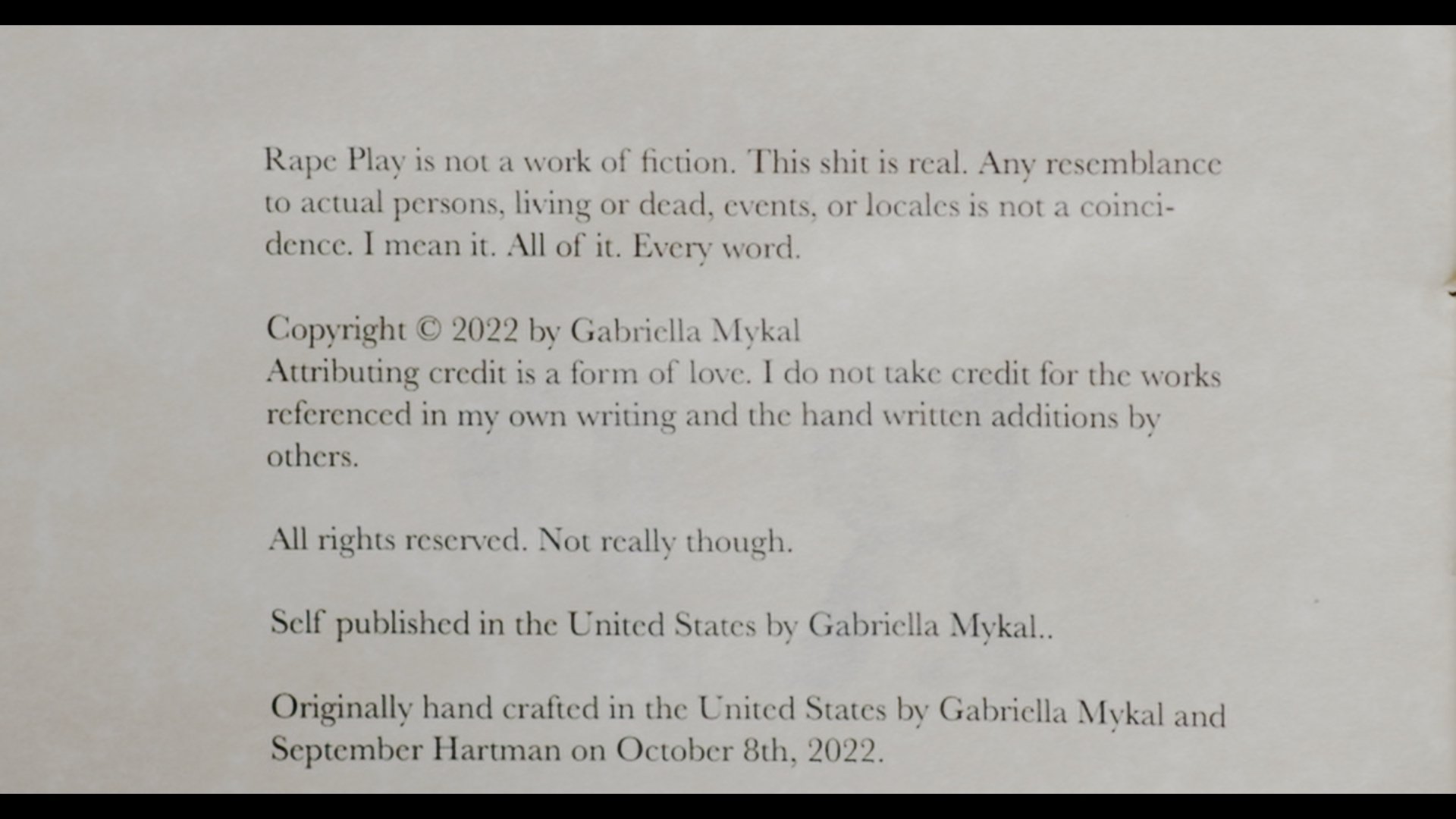
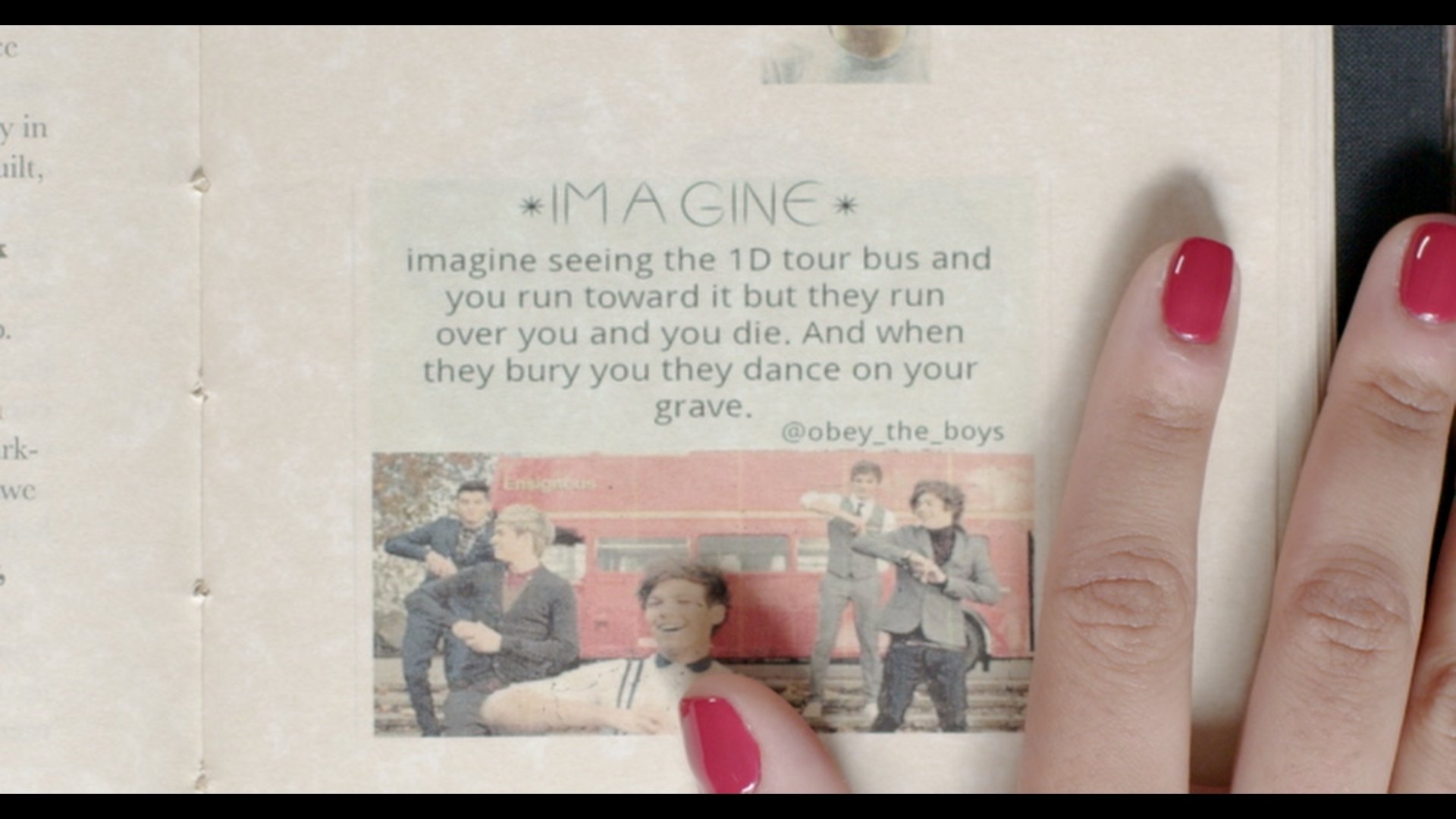
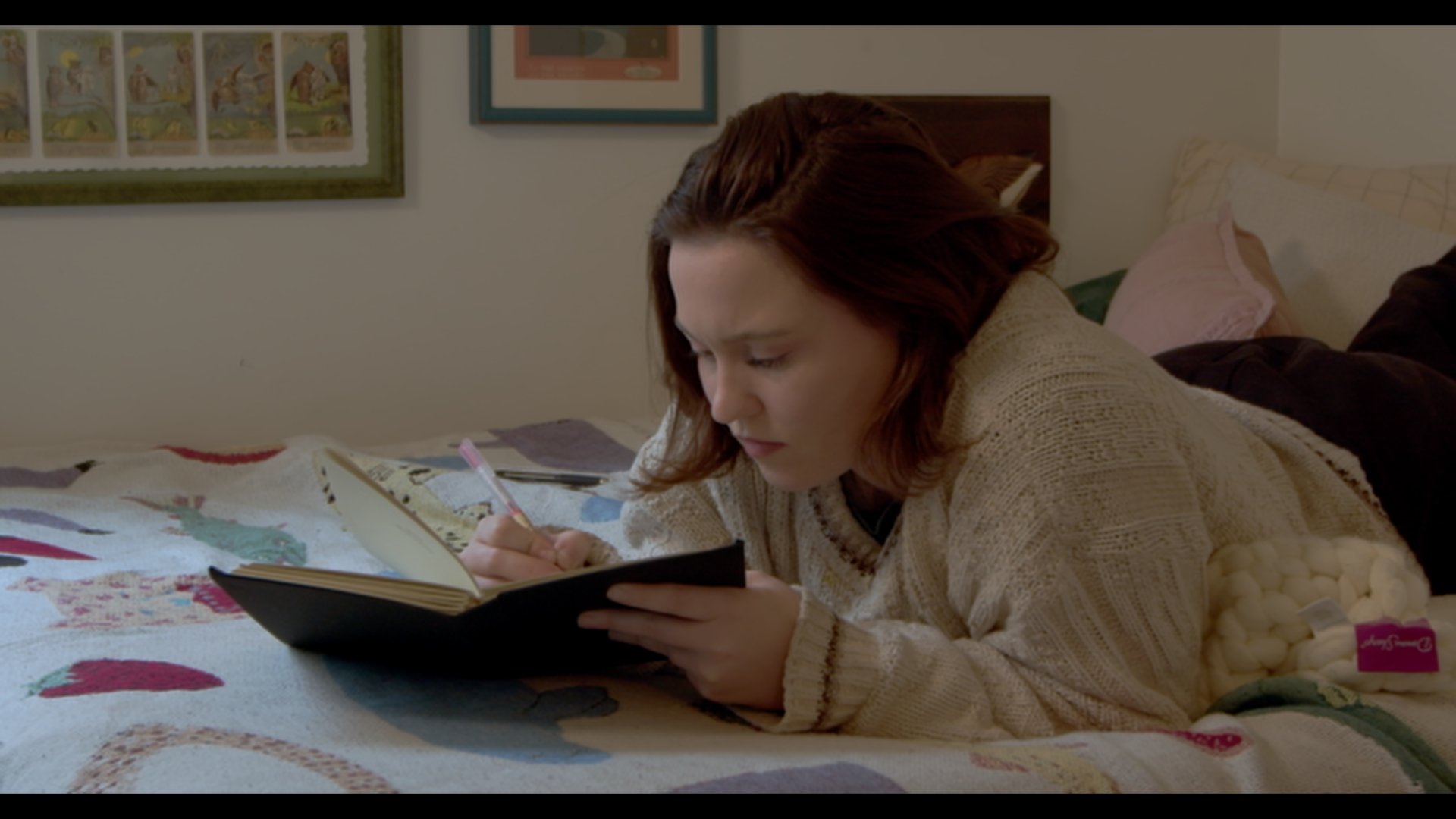


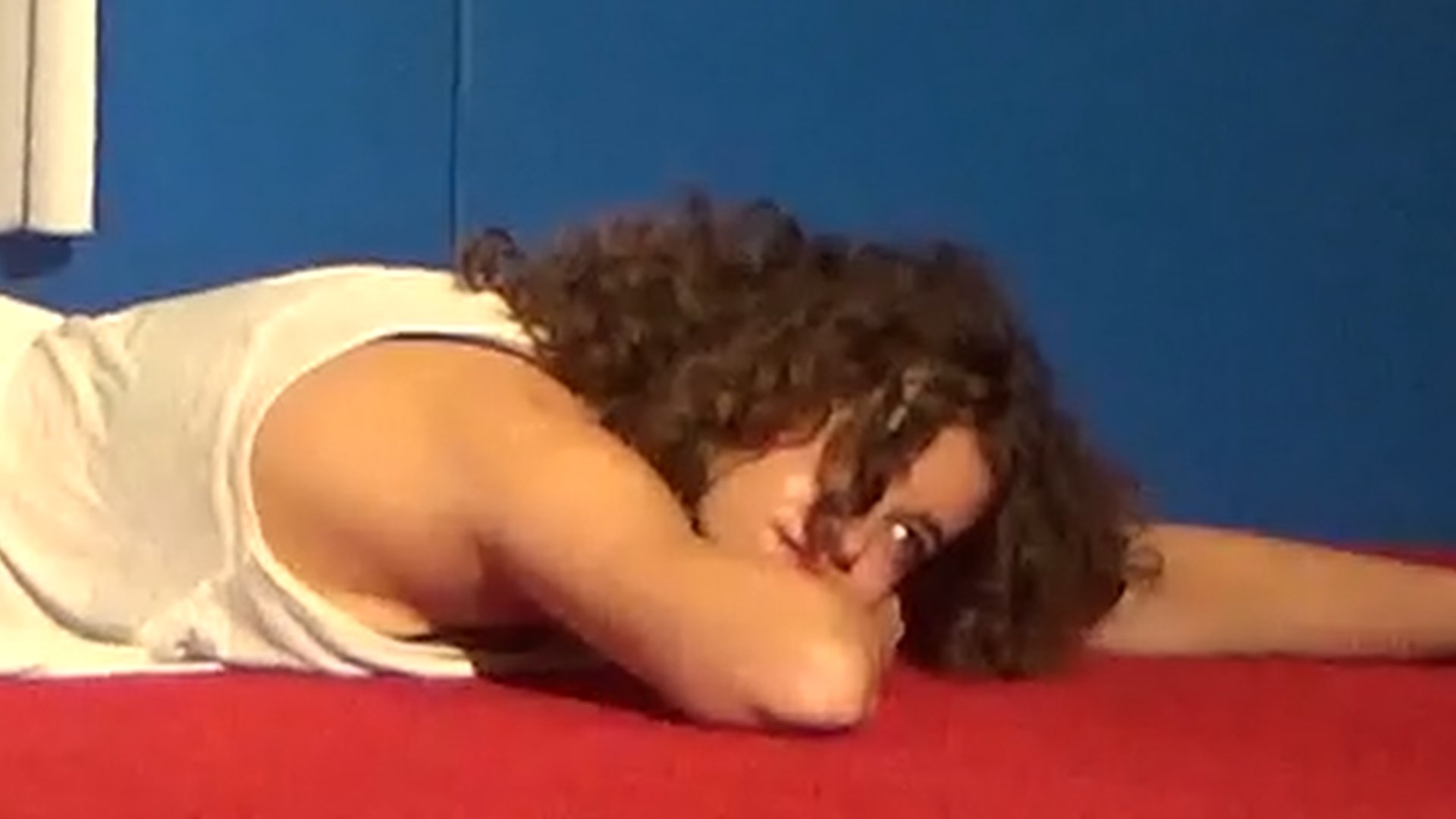


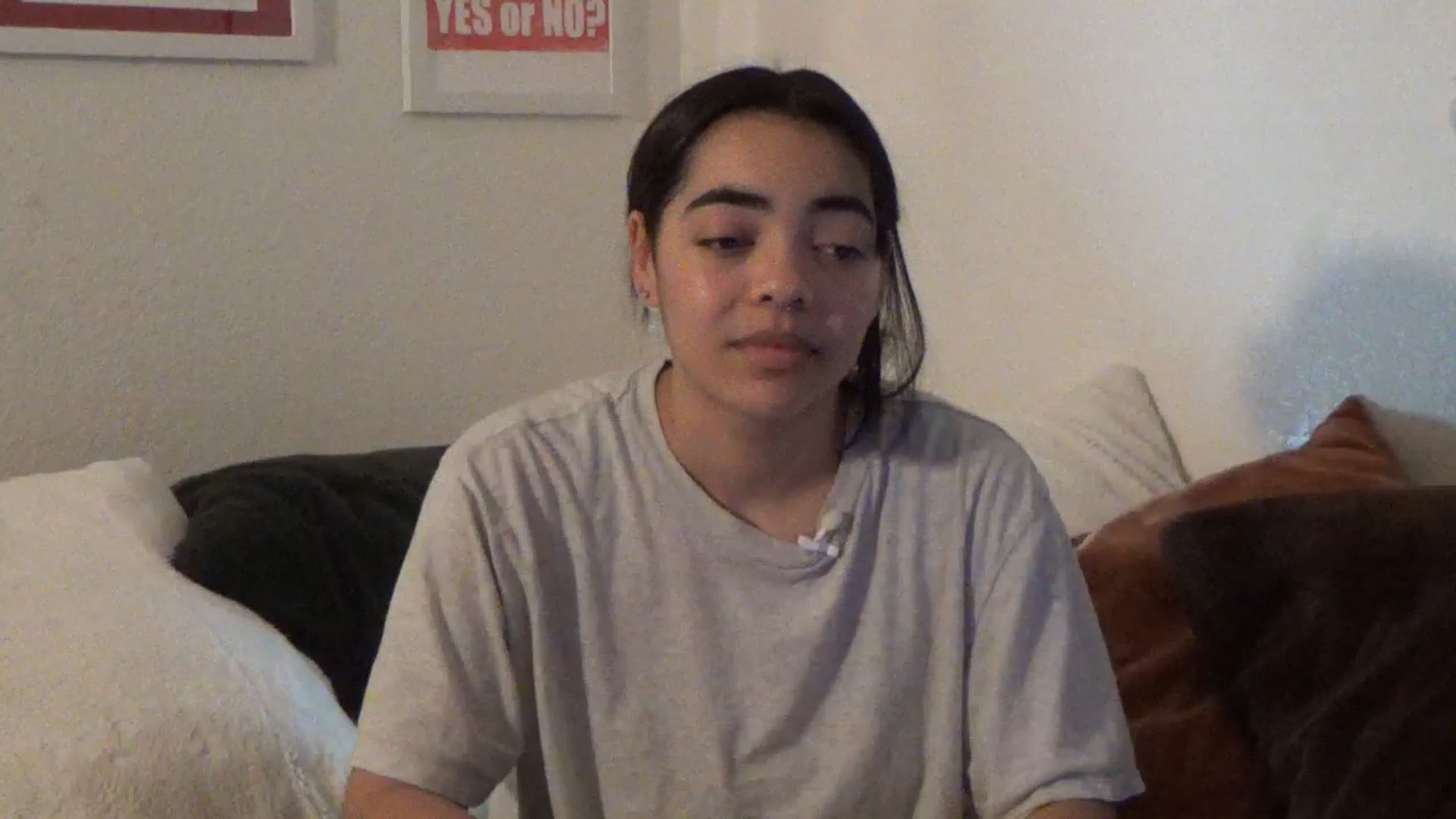

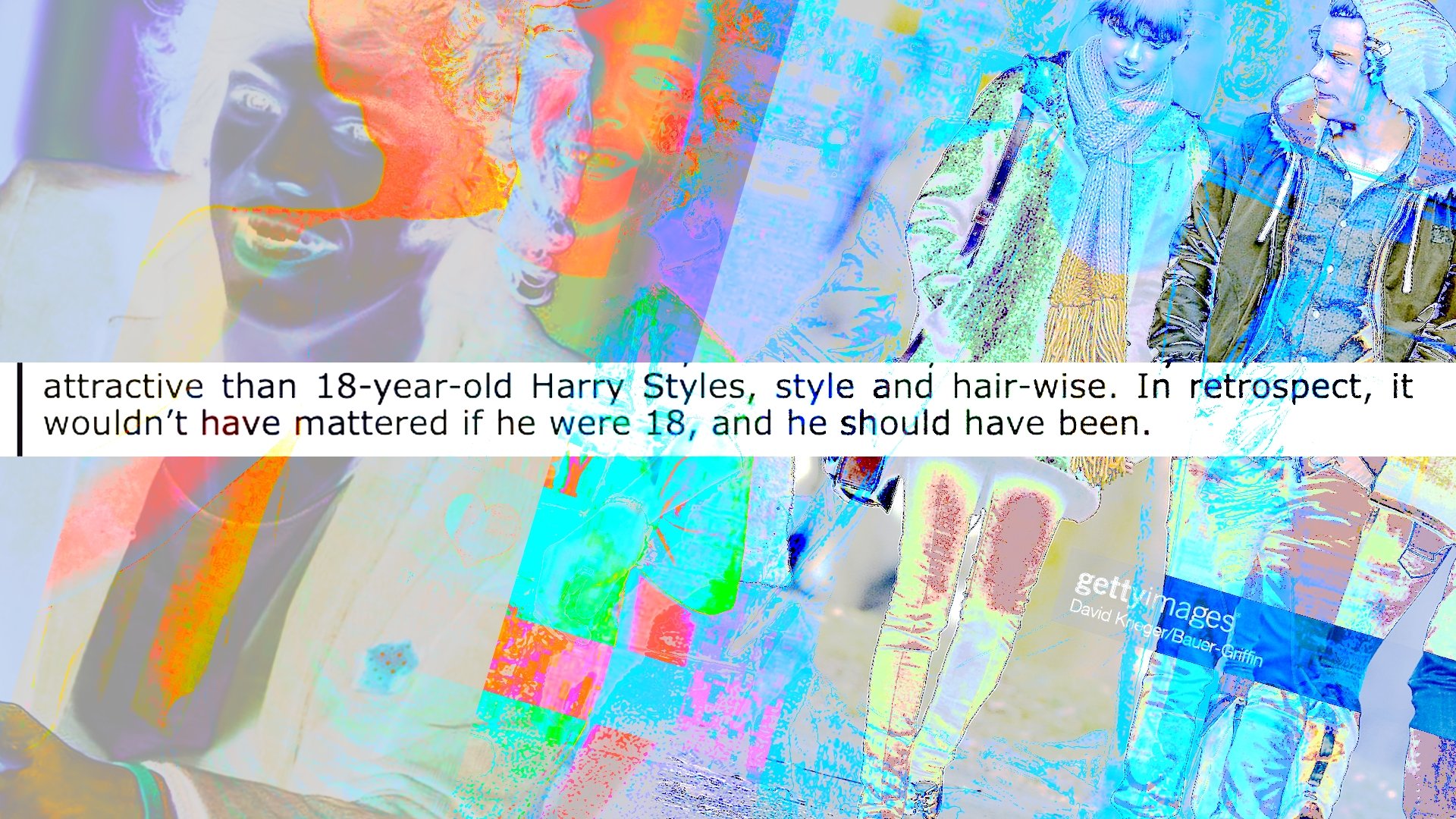
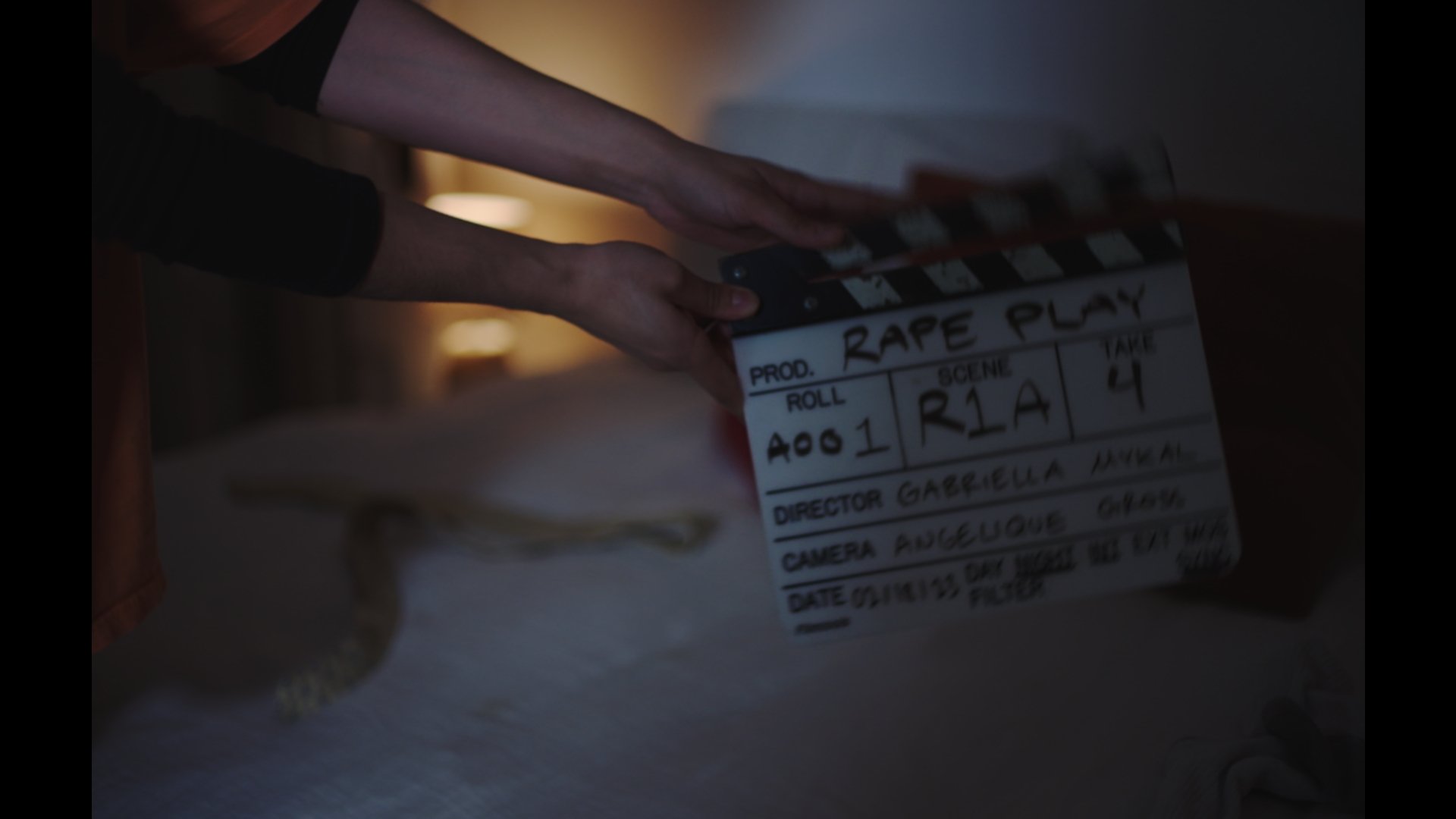


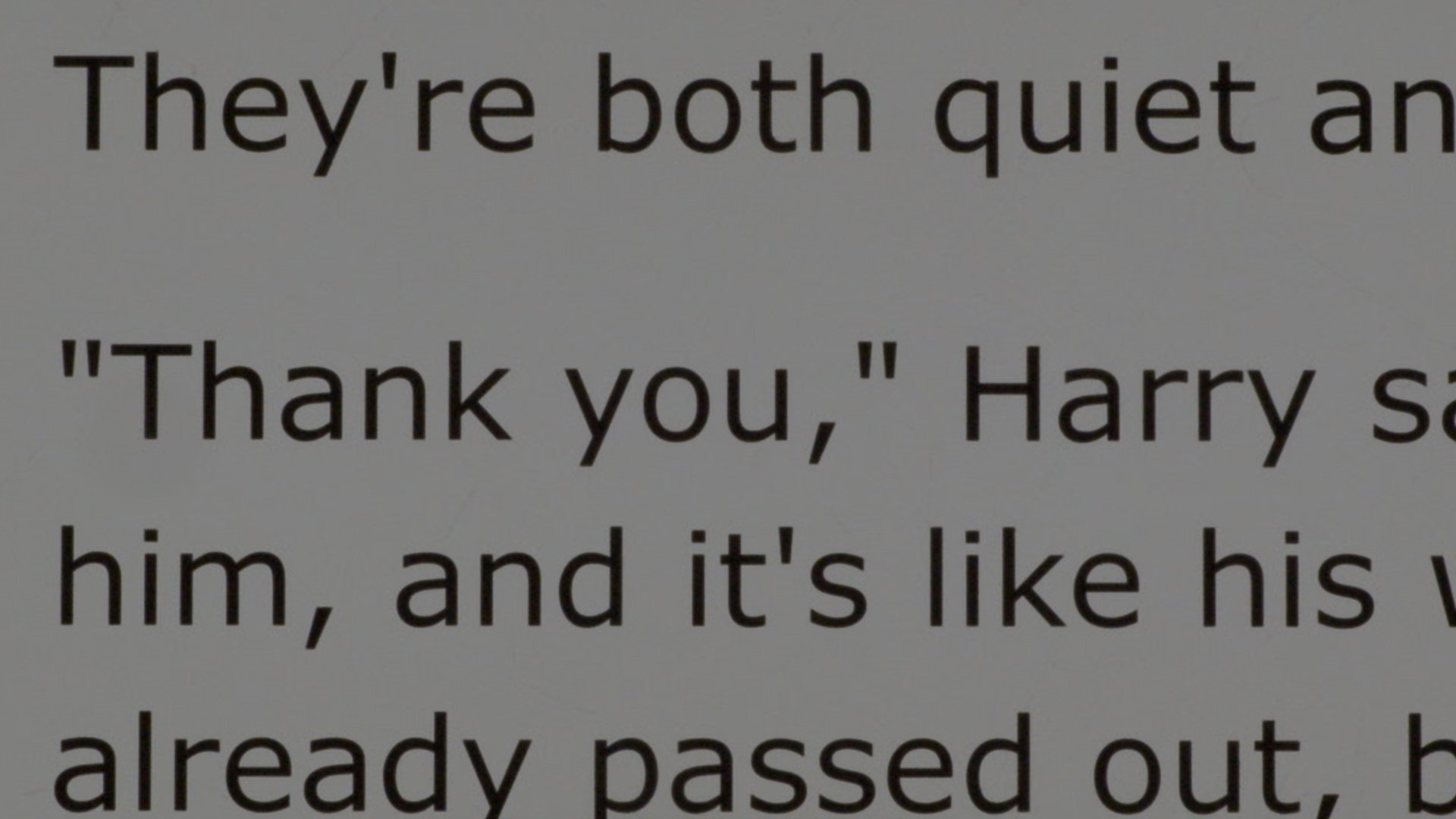
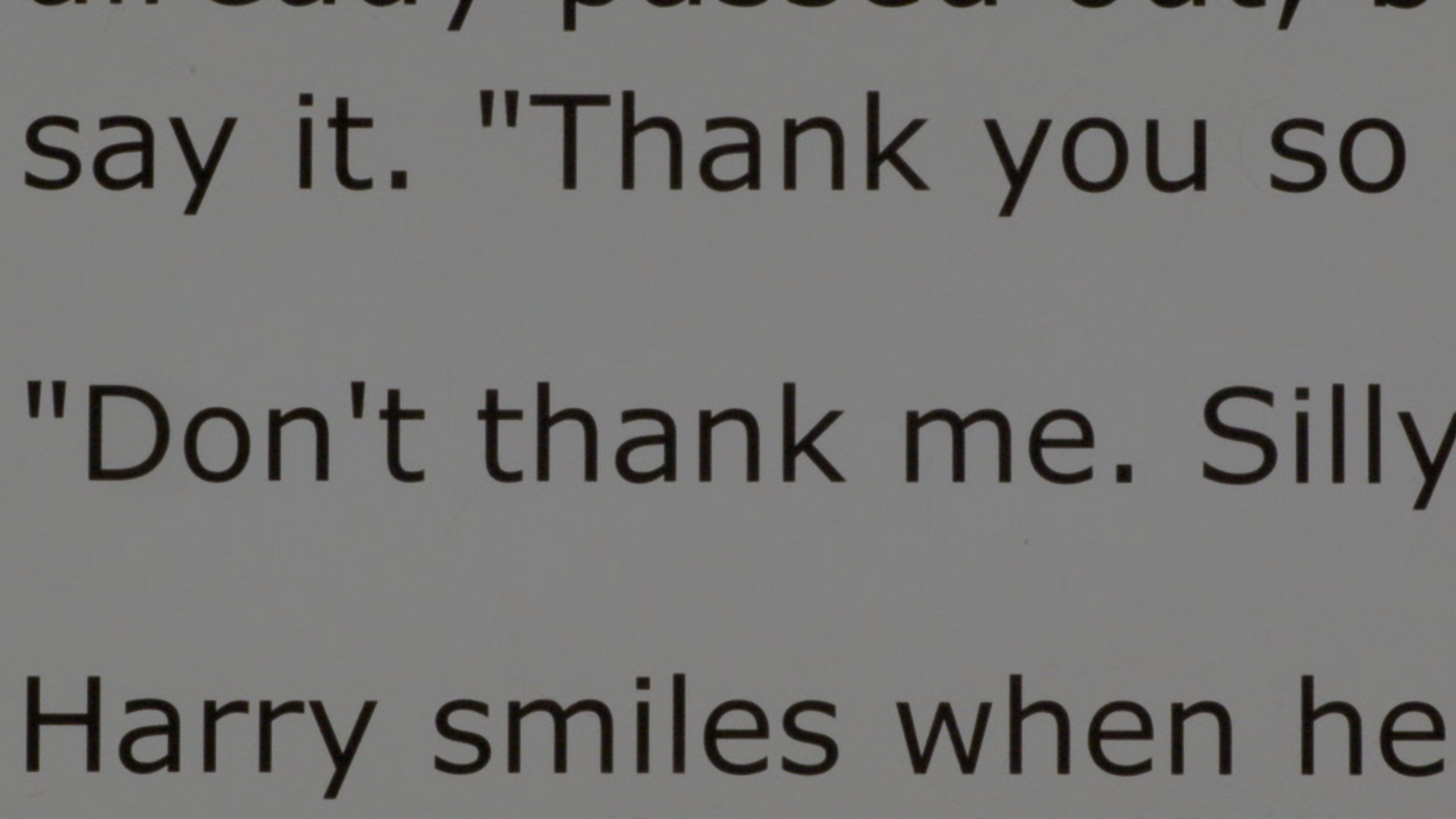




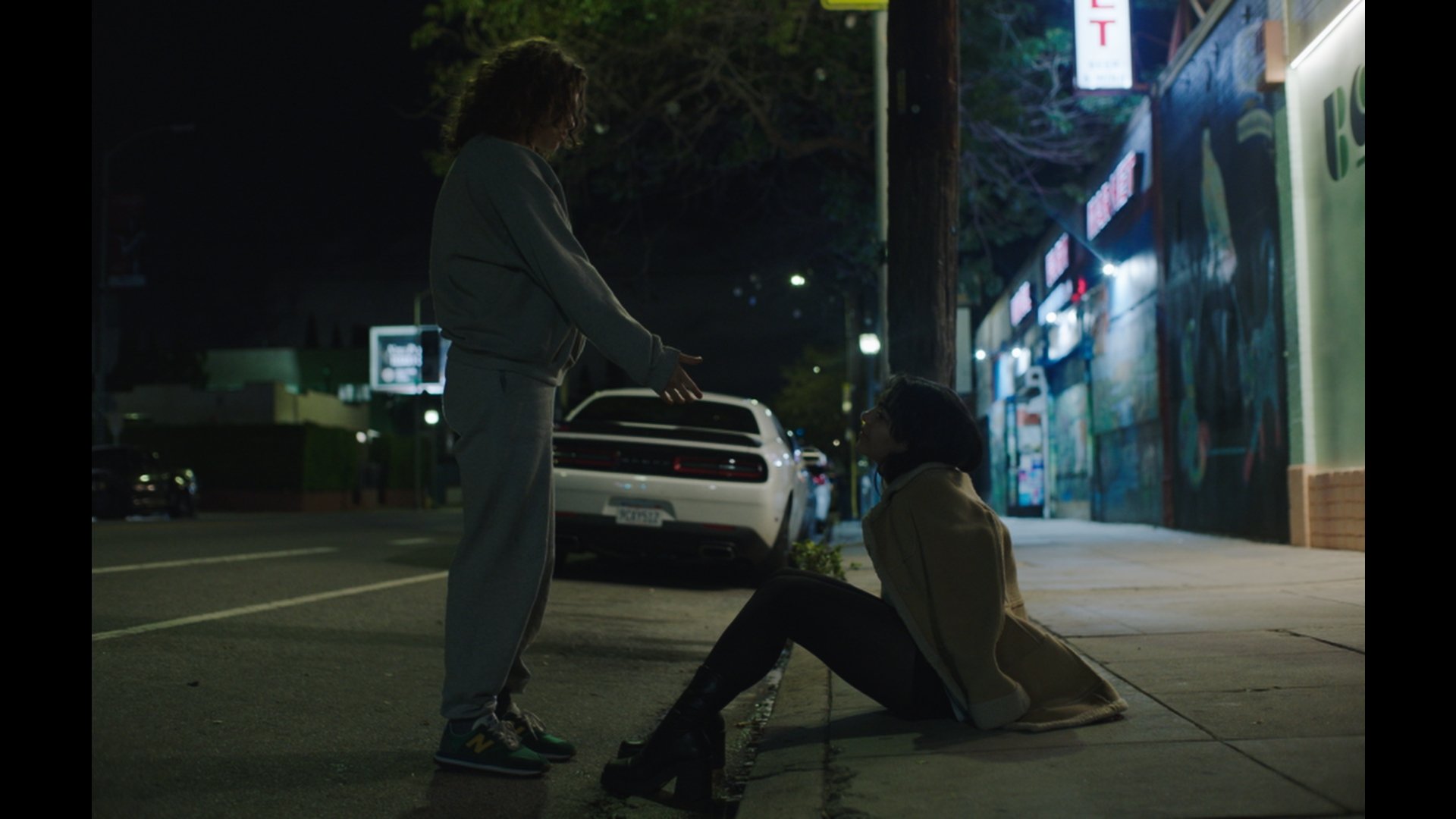

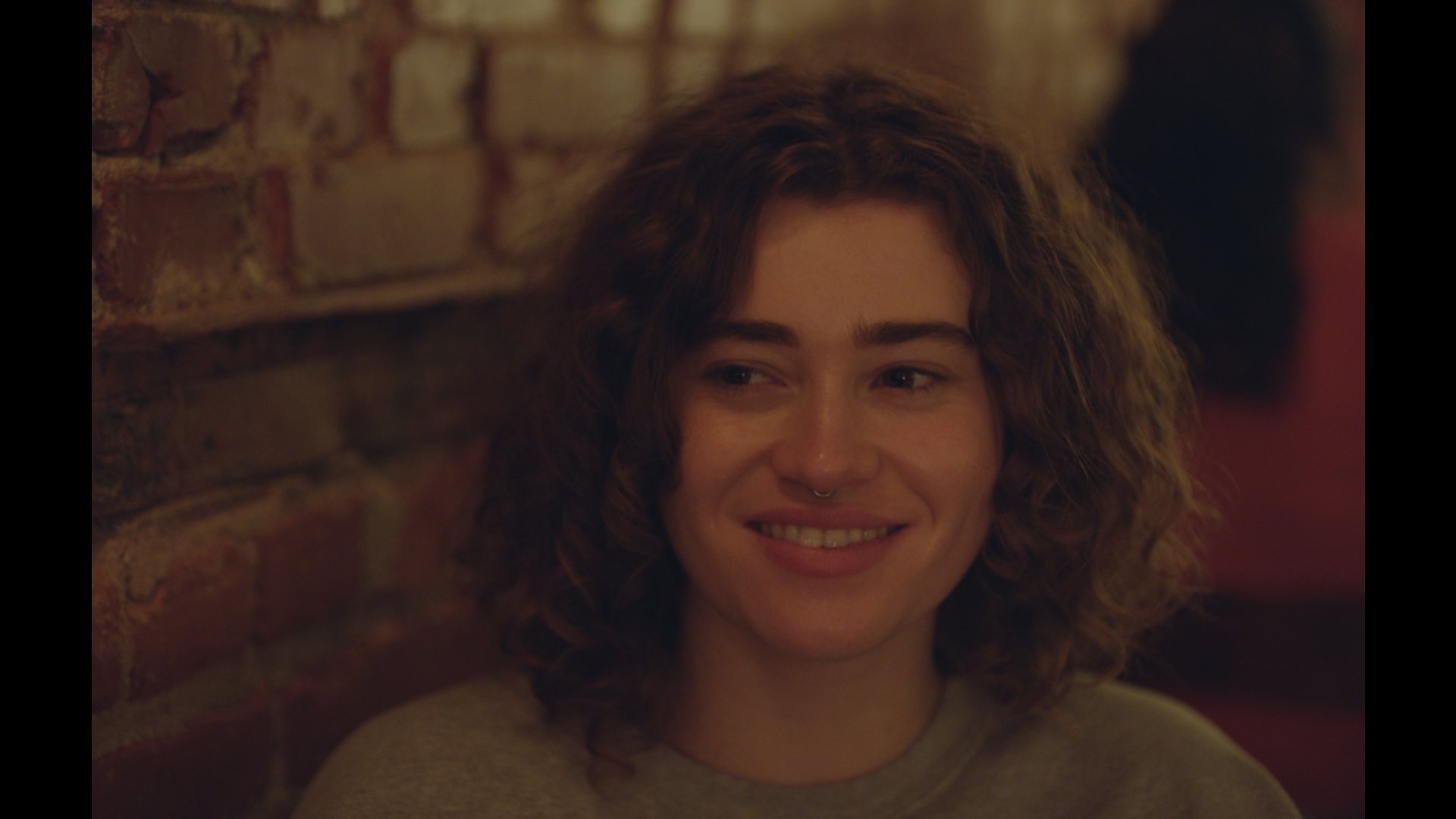

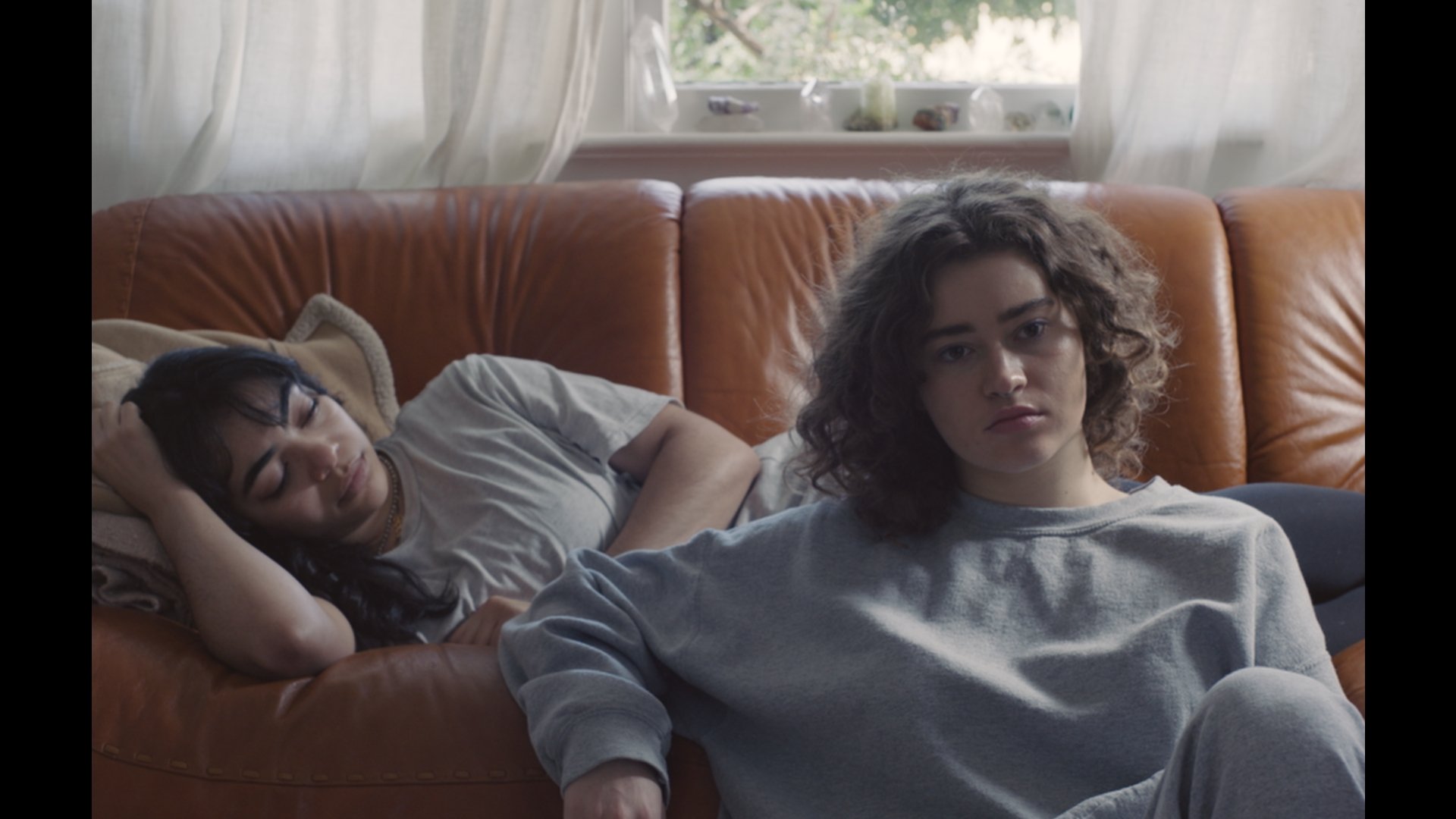
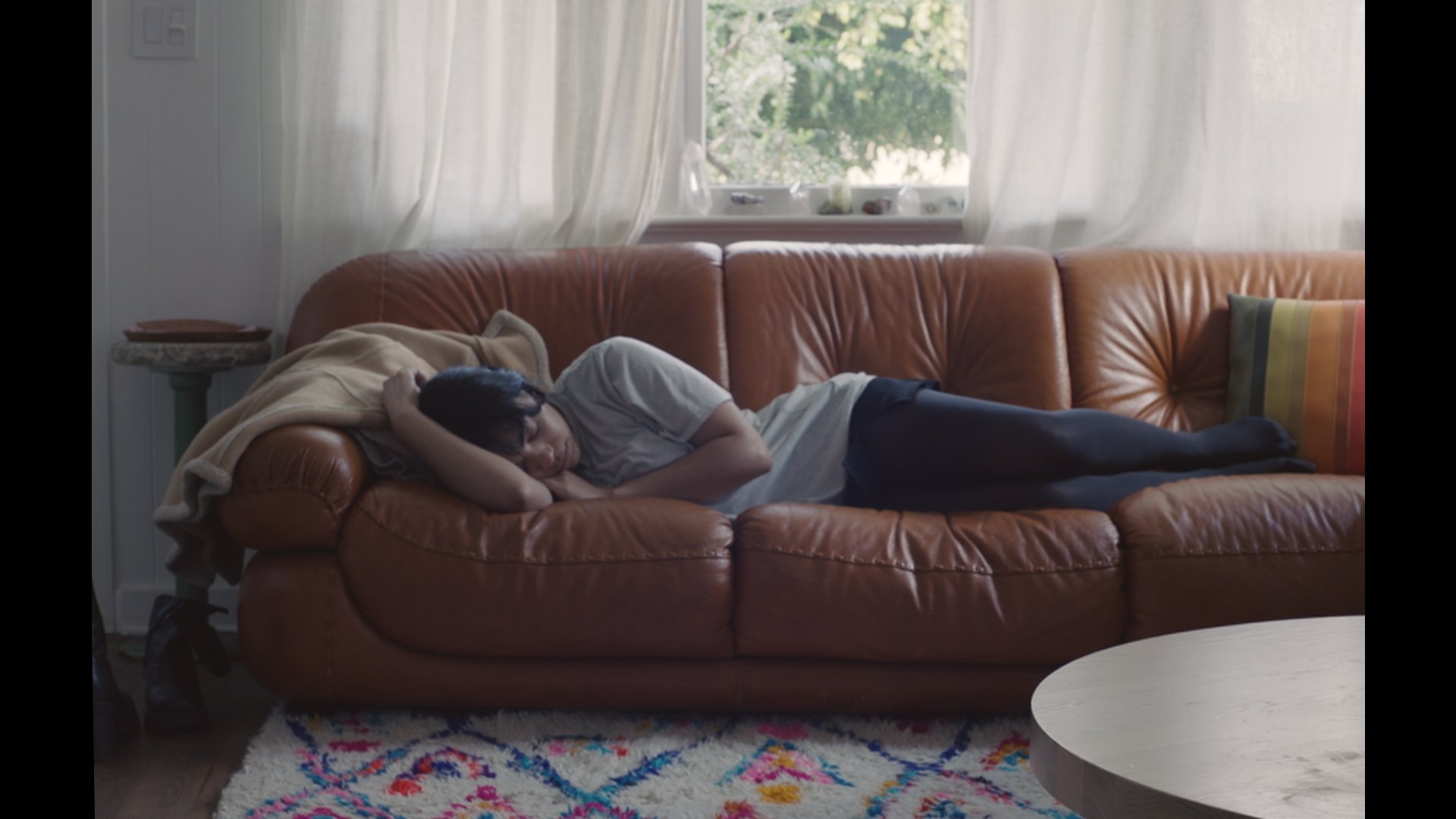
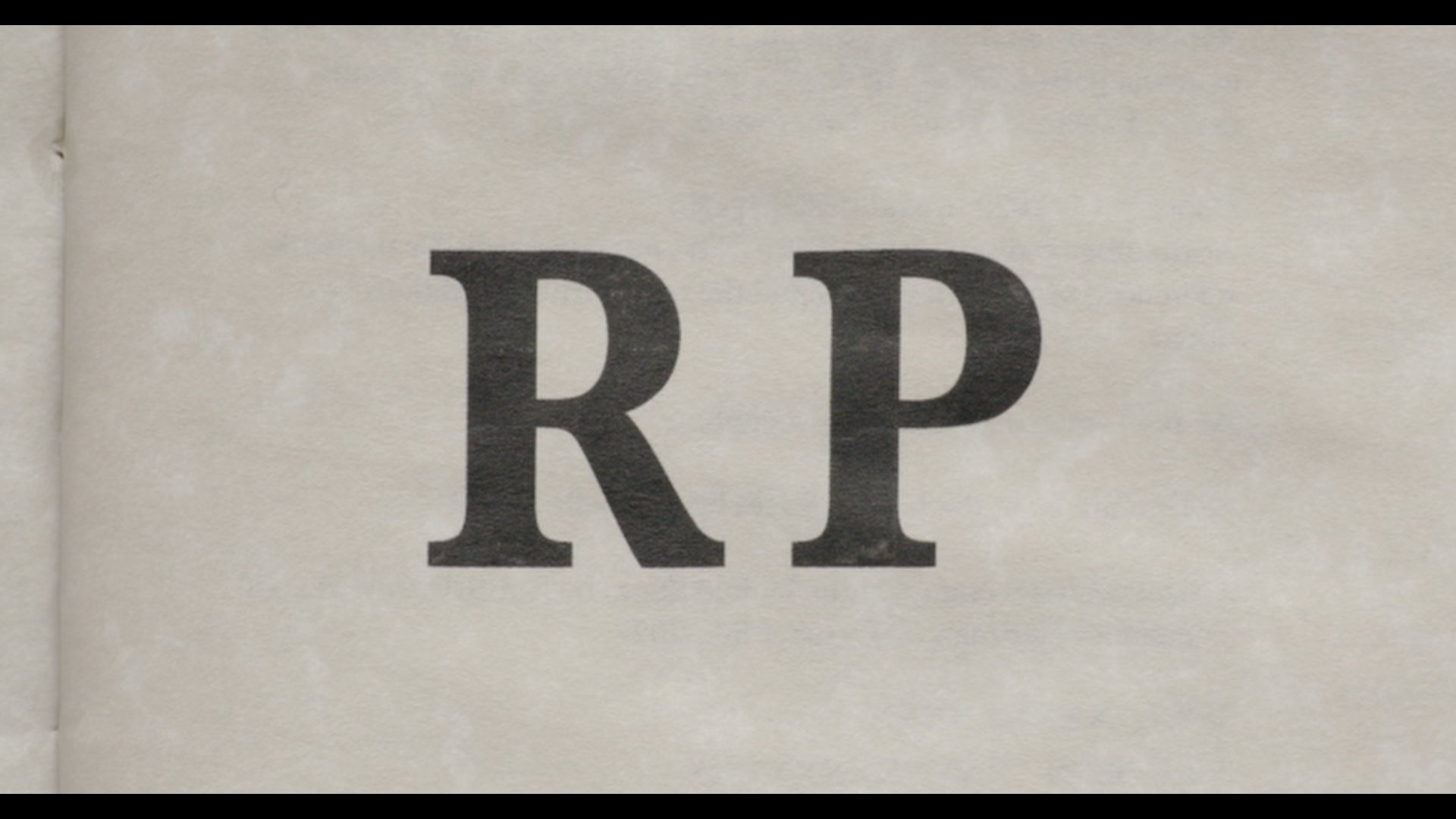
SOURCES / REFERENCES
WORKS REFERENCED
THROUGHOUT THE FILM
Dworkin, Andrea. Right-Wing Women. New York: Perigee Books, 1983.
Fisher-Quann, Rayne. "The Pain Gap." Internet Princess (Substack), November 21, 2021.
Fradd, Matt. The Porn Myth: Exposing the Reality Behind the Fantasy of Pornography. San Francisco: Ignatius Press, 2017.
Hellekson, Karen. “A Fannish Field of Value: Online Fan Gift Culture.” Cinema Journal 48, no. 4 (2009): 113–18.
Hernandez, Lisette. “If I die tonight tell One Direction I’ll see them in hell.” Twitter, 2014.
LoadedGunn. You’ll Breathe Me in (You Won’t Release). Archive of Our Own, 2014.
Stoltenberg, John. Refusing to Be a Man: Essays on Sex and Justice. Portland, OR: Breitenbush Books, 1989.
Strosser, Margaret. Rape Stories, 1989. Film, 25 min.
Tiffany, Kaitlyn. Everything I Need I Get from You: How Fangirls Created the Internet as We Know It. New York: MCD, 2022.

